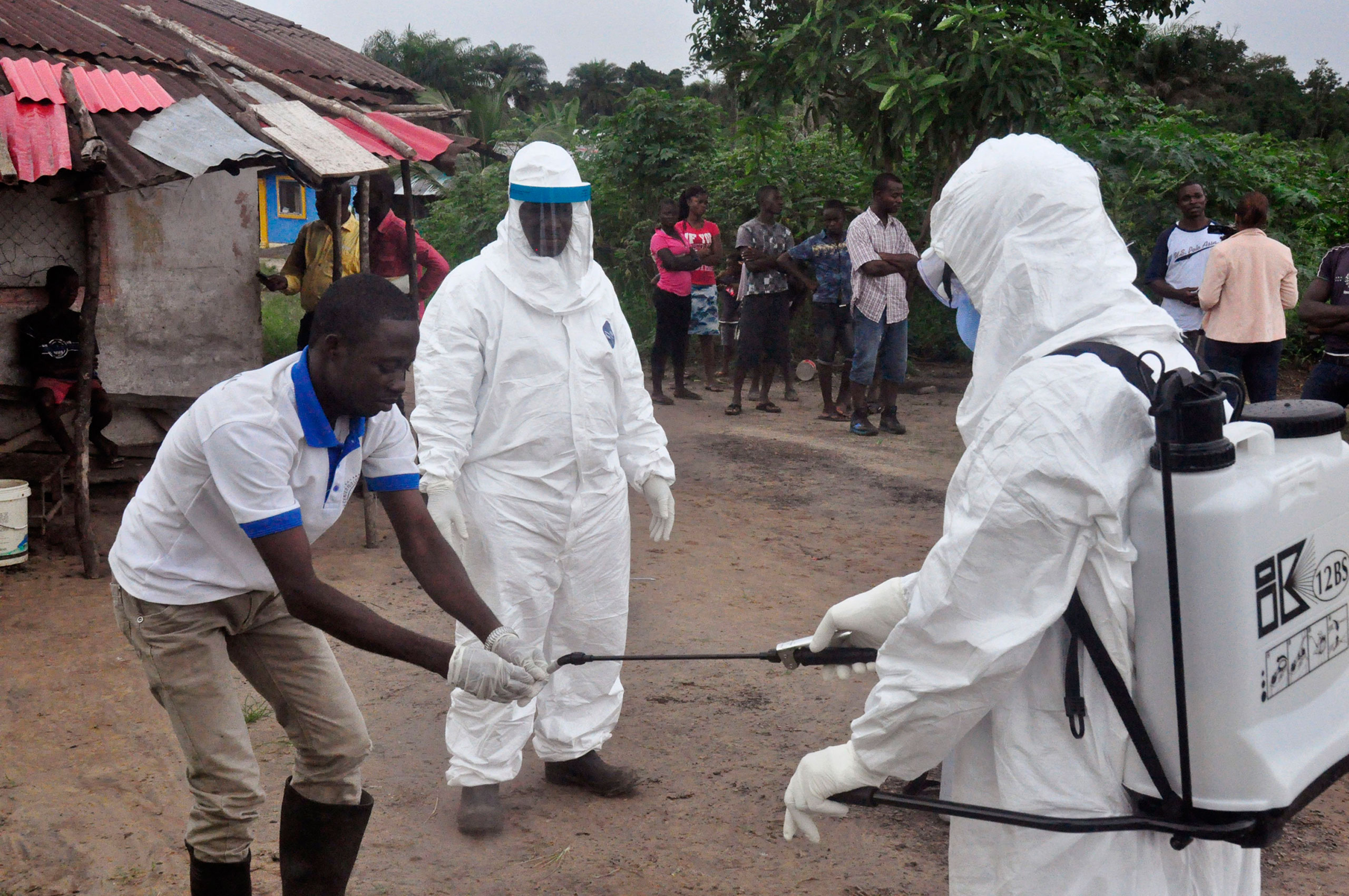As the Ebola virus continues to ravage West Africa, the risk of it spreading to the U.S. is becoming more likely by the day. However, this doesn’t mean Americans should panic or even expect that it will spread here at an alarming rate anytime soon.
Even though it’s not yet a widespread threat, there are a number of things you need to know in order to be prepared for any possible danger while also protecting your family and friends from any potential risk.
Ebola In America: What You Need To Know
First and foremost, it’s important to keep in mind that Ebola is not a particularly difficult disease to contract. Anyone, regardless of their immune system, can get it. In fact, someone who is healthy is more likely to contract it than someone who is infected. And while it’s certainly possible that the virus could spread across the Atlantic with an infected person arriving in the U.S.

It’s unlikely to happen this far north. A much bigger concern right now is how people across West Africa are reacting to the disease. On top of the horrible toll it’s already taken, the fear and anger of so many people could have a significant impact on how fast the virus spreads.
How Did Ebola Spread In The First Place?
It’s important to understand exactly where the current outbreak started so that you can get a better idea of exactly how the virus is spreading as we speak. In the spring of 2014, a man from Liberia traveled to Texas. He later returned to Liberia, where he became infected with the virus.
Unfortunately, he didn’t disclose his infection to anyone, and by the time the CDC was able to trace his infection, he was already quite sick. The man later died, and his relatives were infected. One of them was a 4-year-old boy who had come into contact with the man while he was contagious. His mother had taken him to the hospital in Dallas, where he was diagnosed with Ebola.
How Can You Protect Yourself From Ebola?
The most important thing to remember here is that the virus is not very contagious. So it’s unlikely that you or someone you come into contact with would catch Ebola just from being in the same room with someone who is infected. Before you worry too much about how to protect yourself, it’s important to remember that the chances of getting infected are slim to none.
There are a few precautions you can take to reduce your risk of contracting the virus while you’re still in West Africa.
- Don’t travel to areas where there is active disease.
- Don’t put your fingers or any other bodily fluids in your mouth while in Africa. This means no wiping your nose, eating, drinking, or spitting.
- Wash your hands with soap and water before touching your face, mouth, or eating or drinking. After you’re done, wash your hands again.
Where Is Ebola Most Likely To Spread?
In addition to the fact that it’s unlikely to spread across the Atlantic to the U.S., the chances of it spreading to other parts of the world are also extremely low. When looking at where the outbreak started and where it’s likely to spread, experts say that the riskiest areas are those, like Dallas, where the man was exposed to the virus and where a number of his relatives are now infected.
That said, most experts say that the U.S. is unlikely to see widespread outbreaks of Ebola, and they’re most worried about the possibility of West Africa exporting the virus to other countries in the region, like Nigeria, where there are a lot of refugees and where many people never receive regular medical checkups.
How Would It Be Detected In The U.S.?
The Dallas patient was diagnosed with the disease after he returned home to Liberia. As you can imagine, it isn’t particularly easy to test for the disease in a place like that. In fact, it’s incredibly difficult. This is why the CDC says that, while the virus is possible to import to the U.S., it’s more likely to be spread by people who are infected with it in West Africa and then travel to other countries.
This is why the CDC has warned against U.S. citizens flying to Africa and has advised against traveling to the affected areas in West Africa. There are, however, two exceptions to this. If you were to go on a humanitarian trip to the affected areas and were a doctor, nurse, or another healthcare professional, you’d be required to report your trip to the CDC. There is also one situation in which a person would be required to report to the CDC.
Protecting Your Home From Ebola

The fact that the virus is not very contagious doesn’t mean that you don’t have to take any extra precautions at home. The best thing you can do is to practice good hygiene, which includes washing your hands with soap and water after going to the bathroom and before eating or drinking and making.
Sure that your kitchen and water are clean. If you’re particularly worried about protecting your home from Ebola, you can also use bleach to clean your home, wear a facemask while cleaning, and air out your home while you’re cleaning.
Conclusion
Ebola isn’t a particularly dangerous disease, but it’s highly contagious. There are a few things you can do to protect yourself and your family while you’re still living in West Africa, like not touching your eyes, nose, and mouth, and washing your hands with soap and water.
If you choose to travel to these areas, you should make sure that you follow strict precautions to reduce your risk of contracting the virus, like wearing a mask and gloves while you’re in the affected areas, and being careful not to touch your eyes, nose, or mouth.
